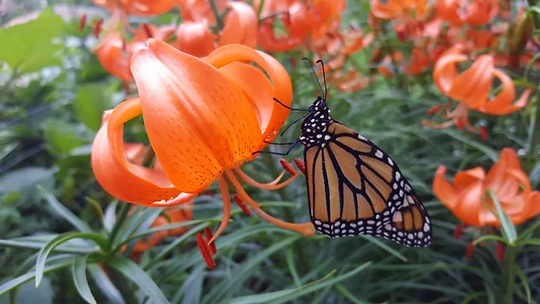
Gansu Agricultural University
April 2017
Lanzhou Lily Study
ABOUT THE COLLEGE
Gansu Agricultural University (GAU) is a non-profit public higher education institution situated on the picturesque Yellow River bank in Anning district of Lanzhou. It is one of the universities on the first list of China's Excellent Agricultural and Forestal Personnel Training Project. In April 2017 GAU studied the negative effects of continuous cropping and soil fumigation in Lanzhou Lilies
The Lanzhou Lily
The Lanzhou lily (Lilium davidii var. Unicolor) is the only sweet lily in China. The crop is usually cultivated by dry cropping in spring, sown in the middle and late April, and harvested 2 to 4 years later. By performing continuous cropping techniques along soil fumigant applications to reduce soil born diseases, the Lanzhou Lily fields were found to began experiencing crop yield reduction or even extinction and causes huge losses to growers.


The Study
In 2017 GAU's research group set out to show that a combination of soil fumigation (SFM, lime nitrogen) + microbial organic fertilizers could effectively improve the soil microbiotic environment, effectively alleviate the continuous cropping obstacles of such facilities, and improve the yield and quality of crops.
The experimental sites were selected at the junction of Lanzhou, Yuzhong, and Lintao, which is a suitable planting area for Lanzhou lily with a history of edible lily planting for 140 years.
The test materials used for their experiment included 80's Special as the main Organic Microbial Fertilizer, primary commercial Lanzhou Lily seed balls and a Chemical fumigant of 42% SFM water fertilizer.
The Results
The study consisted of testing on the aforementioned plots, which had implanted Lanzhou Lily over 6 consecutive years, for a testing of two consecutive years using test pools of crops treated with soil fumigants alone and other pools of crops treated with the same soil fumigants as well as microbial fertilizers. The collection and testing of soil samples followed and finally a final measurement of the physiological indexes of plant growth and yield quantity was conducted.
Conclusively, the tests which applied a combination of 80's Special to their current soil fumigation techniques saw altogether high margins of benefits for the area's of Root Viability, Soil Conditions and their microbial cultures' well-being, crop sizes and even inYield Amounts.


